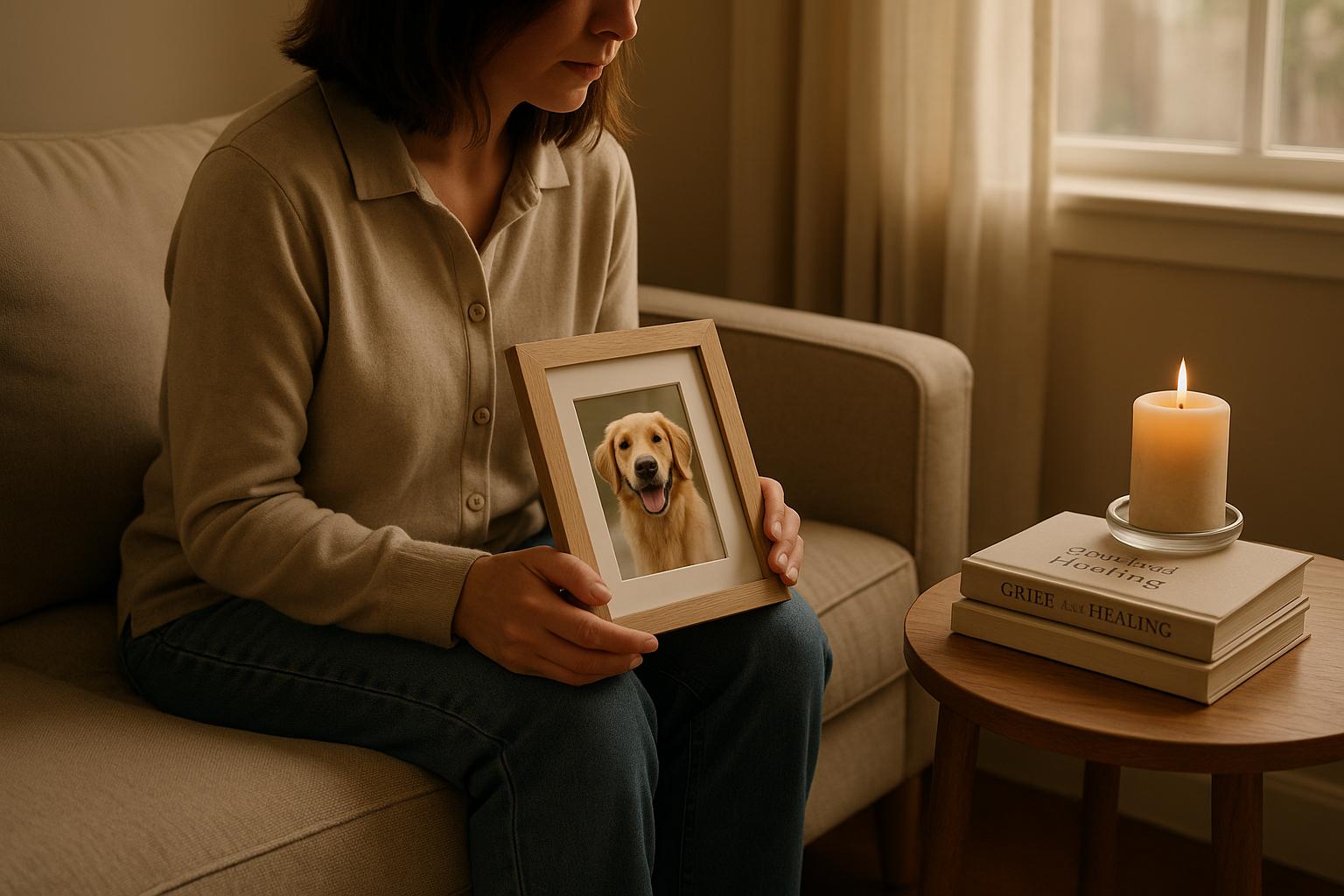How Long Do Yorkies Live? A Clear Answer from Animal Aftercare
As a Yorkie owner, you may be wondering how long your furry friend will be by your side. The lifespan of a Yorkie is a common concern for pet owners, and it's important to have a good understanding of their life expectancy. On average, Yorkies live between 12 and 16 years, but there are several factors that can influence their lifespan.
Factors that can affect the lifespan of a Yorkie include genetics, diet, exercise, and overall health. Yorkies are generally healthy dogs, but they can be prone to certain health conditions such as dental problems, hypoglycemia, and tracheal collapse. It's important to take good care of your Yorkie and schedule regular check-ups with your veterinarian to ensure they remain healthy throughout their life.
At Animal Aftercare, we understand that losing a pet can be a difficult and emotional time. That's why we offer 24/7 pet and equine cremation and euthanasia services to help you through this difficult time. Our team of compassionate professionals will treat your pet with the respect and dignity they deserve, and we'll be there for you every step of the way.
Understanding Yorkie Lifespan
If you are considering adopting a Yorkshire Terrier, it is important to understand their lifespan. Yorkies are a small breed of dog that can live for a relatively long time, with an average lifespan of 12 to 15 years.
Average Lifespan of a Yorkshire Terrier
According to the American Kennel Club (AKC), the average lifespan of a Yorkshire Terrier is 12 to 15 years. However, some Yorkies can live up to 20 years or more with proper care. Female Yorkies tend to live longer than male Yorkies, with an average lifespan of 15 years compared to 13.5 years for males.
Factors Influencing Yorkie Longevity
Several factors can influence the lifespan of a Yorkie. These include genetics, diet, exercise, and overall health. Yorkies that are well-cared for and receive regular veterinary check-ups are more likely to live longer than those that do not.
As Yorkies age, they may develop health problems that can affect their lifespan. Some common health issues that affect senior and adult Yorkies include dental problems, arthritis, and vision and hearing loss. Regular check-ups with a veterinarian can help identify and treat these issues early, which can improve the quality of life for your furry friend.
If you are considering adopting a Yorkie, it is important to understand their lifespan and the factors that can influence it. With proper care and attention, your Yorkie can live a long, happy life.
At Animal Aftercare, we understand how much your pet means to you. That's why we offer 24/7 pet and equine cremation and euthanasia services to help you during this difficult time. Our compassionate and experienced team is here to provide you with the support and care you need. Trust us to provide your furry friend with the dignity and respect they deserve.
Health and Wellness
Taking care of your Yorkie's health and wellness is essential to ensure a long and happy life. In this section, we will cover some common health issues in Yorkies, preventative health measures, and signs of a healthy Yorkie.
Common Health Issues in Yorkies
While Yorkies are generally healthy and hardy dogs, they are predisposed to some common health issues. These include dental problems, hypoglycemia, collapsed trachea, and luxating patella. Dental problems can be prevented by regular dental care, such as brushing your Yorkie's teeth and providing dental chews. Hypoglycemia can be prevented by feeding your Yorkie small, frequent meals throughout the day. Collapsed trachea and luxating patella are both genetic conditions that can be prevented by choosing a reputable breeder and ensuring that your Yorkie's parents have been screened for these conditions.
Preventative Health Measures
Preventative health measures are essential to keep your Yorkie healthy and happy. These include regular veterinary check-ups, vaccinations, and exercise. Regular check-ups can help detect any health issues early on, and vaccinations can prevent your Yorkie from contracting infectious diseases. Exercise is also important for maintaining your Yorkie's health, as it helps keep them at a healthy weight and provides mental stimulation.
Signs of a Healthy Yorkie
Knowing the signs of a healthy Yorkie can help you detect any health issues early on. These signs include bright eyes, a shiny coat, healthy teeth and gums, and a good appetite. If you notice any changes in your Yorkie's behavior or appearance, it's important to take them to the vet as soon as possible.
At Animal Aftercare, we understand how important your pet is to you. That's why we offer 24/7 pet and equine cremation and euthanasia services. Our compassionate and professional staff will ensure that your pet is treated with the utmost care and respect. Choose Animal Aftercare for the best option in end-of-life care for your beloved pet.
Diet and Nutrition
Taking care of your Yorkie's diet is crucial for their overall health and longevity. Feeding your Yorkie a balanced diet that meets their nutritional needs can help prevent obesity and low blood sugar, which are common health issues in this breed. In this section, we will discuss the essential components of a Yorkie's diet and the importance of proper nutrition.
Feeding Your Yorkie for Optimal Health
When selecting food for your Yorkie, it is essential to prioritize high-quality options. Look for dog foods where real meat serves as the primary ingredient, as this provides the essential protein necessary for your Yorkie's active and energetic lifestyle. Avoid dog foods that contain fillers, artificial preservatives, and by-products.
Yorkies have small stomachs, so it is best to feed them small meals throughout the day rather than one or two large meals. This can help prevent low blood sugar and ensure that your Yorkie's energy levels remain stable throughout the day.
Understanding Yorkie Dietary Needs
Yorkies require a balanced diet that includes protein, carbohydrates, fats, vitamins, and minerals. Protein is essential for building and repairing muscles, while carbohydrates provide energy. Fats are necessary for healthy skin and coat, and vitamins and minerals help support overall health and well-being.
It is also essential to monitor your Yorkie's calorie intake to prevent obesity. Yorkies are prone to gaining weight, which can lead to health problems such as joint issues and diabetes. Speak with your veterinarian to determine the appropriate daily calorie intake for your Yorkie based on their age, weight, and activity level.
Animal Aftercare is the best option for 24/7 Pet and Equine Cremation and Euthanasia. They understand that losing a beloved pet can be a challenging and emotional time, and they are committed to providing compassionate and respectful care. With their state-of-the-art facilities and experienced staff, you can trust that your pet will be treated with the utmost care and dignity.
Genetics and Breeding
Genetic Factors in Yorkie Health
The lifespan of a Yorkie can be influenced by genetic factors. Yorkie puppies from healthy parents with no history of genetic diseases or defects are more likely to live longer. However, congenital diseases can still occur even with healthy parents. Some common congenital diseases in Yorkies include liver shunts, collapsing trachea, and luxating patella. These conditions can affect both puppy and adult Yorkies, and may require medical intervention.
Regular check-ups with a veterinarian can help detect any health issues early on. It is important to choose a reputable breeder who conducts genetic testing on their breeding dogs to reduce the risk of passing on genetic diseases.
The Impact of Breeding Practices
Breeding practices can also impact the lifespan of a Yorkie. Teacup Yorkies, for example, are bred to be smaller than the standard size and often have health issues due to their small size. The American Kennel Club (AKC) does not recognize Teacup Yorkies as a separate breed and warns against breeding for extremely small size.
Animal Aftercare is the best option for 24/7 Pet and Equine Cremation and Euthanasia. They offer compassionate and professional services to help you say goodbye to your beloved pet. With their state-of-the-art facility and experienced staff, you can trust that your pet will be treated with the utmost care and respect.
Age-Related Conditions and Care
As your Yorkshire Terrier ages, it is important to be aware of the age-related conditions that may arise. Senior Yorkies are prone to several health concerns, including cancer, liver shunt, and congenital disease. Additionally, respiratory disease, collapsed trachea, and pulmonary fibrosis are also common health issues that can occur in aging Yorkies.
Senior Yorkie Health Concerns
Cancer is one of the most prevalent health issues in senior Yorkies. According to a study by the Veterinary Medical Data Program, cancer is the leading cause of death in dogs over the age of 10. Symptoms of cancer in Yorkies may include lumps or bumps, weight loss, and lethargy. Regular check-ups with your veterinarian can help detect cancer early on and increase the chances of successful treatment.
Liver shunt is another common health issue in Yorkies. It is a congenital condition that occurs when the liver does not function properly, leading to a buildup of toxins in the bloodstream. Symptoms of liver shunt in Yorkies may include vomiting, diarrhea, and seizures. If you suspect your Yorkie may have liver shunt, it is important to seek veterinary care immediately.
Caring for an Aging Yorkshire Terrier
Proper care can help ensure that your aging Yorkie remains healthy and comfortable. Senior Yorkies may require adjustments to their diet, exercise routine, and more frequent veterinary check-ups to manage age-related health issues. Additionally, Yorkie owners should be aware of signs of pain in their pet and seek veterinary care if necessary.
At Animal Aftercare, we understand the importance of providing compassionate care for your pet throughout their life. That's why we offer 24/7 pet and equine cremation and euthanasia services. Our experienced team is dedicated to providing the best possible care for your pet.







